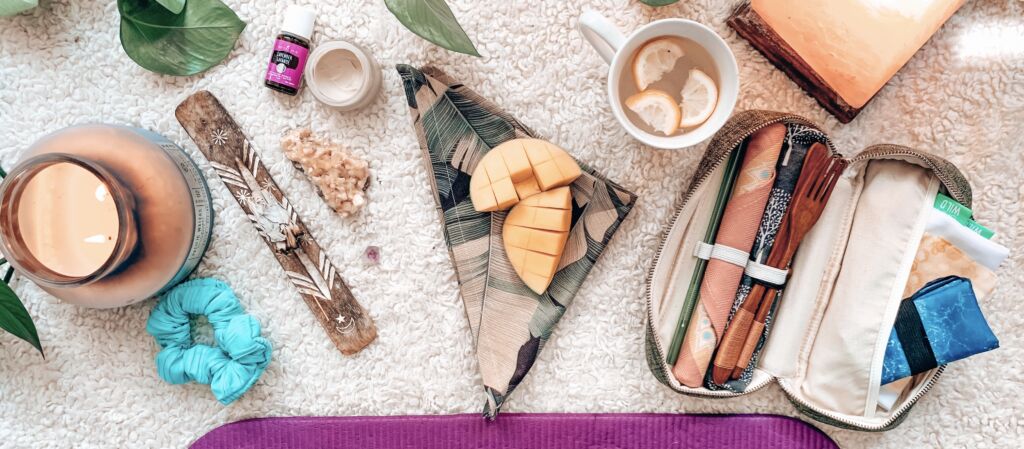Introduction
Mastering self-care is fundamental to leading a disease-free and meaningful existence. The modern world is so fast-paced that, in most cases, people ignore their health, resulting in stress, anxiety, and burnout. Personal wellness encompasses more than just physical health; it encompasses mental, emotional and spiritual health. With proper self-care strategies in place, you are guaranteed an improved quality of life. In this blog, we will highlight the need for mastering self-care, looking at how it relates to personal wellness and how to plan self-care routines daily.

1. What is Self-Care, and Why is it Essential?
Taking care of oneself is what self-care is all about. It is putting in time and effort to maintain and help your health condition improve. It includes all events that look after your mental, physical, and spiritual health.
Why is Self-Care Important?
- Reduces stress – Self-care is one of the ways to deal with stress as it decreases the level of cortisol, which is a primary contributor to anxiety and stress.
- Improves mental health– Taking care of yourself and prioritizing yourself can offer you more emotional stability and help protect against burnout.
- Boosts physical health- Seeking regular self-care moves like healthy dieting and exercising improves your health.
- Encourages Productivity – You can foster your personal and professional life more effectively when caring for yourself.
2. The Connection Between Self-Care and Overall Wellness
Self-wellness is the state of a person’s physical, mental, emotional, and social well-being. Learning self-care is one of the steps toward overall wellness. Here is how self-care relates to different domains of wellness
- Mental Wellness– Emotional self-regulation is achieved through meditation, journaling, and therapeutic activities.
- Physical Wellness– The body can stay healthy through regular exercises, good nutrition, and adequate sleep.
- Emotional Wellness– Self-compassion, gratitude expression, and boundary setting are some practices that enhance emotional well-being.
- Social Wellness– Nurturing relationships and spending time with people one loves can enhance social well-being.
Achieving balance through self-care will subsequently foster a more healthy lifestyle.
3. Creating a Self-Care Plan
The first step to making a self-care routine is identifying activities that refresh and please you. Here’s how you can start:
Step 1: Determine the Requirements
Look into various aspects of your life and choose which requires the most assistance. Are you feeling mentally tired? Does your body feel weak? Figuring out these answers will allow you to devise an effective self-care strategy.
Step 2: Set Realistic Goals
To ease into improving your overall physical health, focus on realistic self-care actions, such as taking a 15-minute walk.
Step 3: Make Time for Self-Care
To ensure that self-care is a priority, schedule it as you would an important meeting. Self-care should take up at least 30 minutes of your day.
Step 4: Stick to Your Routine
Make self-care a habit to achieve the desired results. You cannot master anything without practicing. Always set aside time for self-care like other tasks in your day.
4. Simple Self-Care Practices for Mental Health
Mental self-care is self-care just as physical self-care can be, and as it should be, there are some fantastic, easy, refreshing practices, some of which are listed below:
1. Meditation and Mindfulness
Simple things like meditation and mindfulness allow the brain to take a well-needed break while reducing stress and improving concentration. You will be surprised how only 10 minutes of daily meditation can impact your mental space.
2. Journaling
Recording your ideas and emotions allows unused thoughts to be decluttered and gives the writer a better sense of what is happening. Writing a gratitude journal shifts the reader’s perception into a more uplifting reality.
3. Digital Detox
Screens are a great source of information, but constantly engaging with them can be mentally draining. Step outdoors to clear your mind and have a break from social media.
4. Deep Breathing Exercises
The 4-7-8 method is a wise, deep breathing technique that, when practiced, may help ease panic and foster relaxation.
5. Therapy and Counseling
Seeking a specialist’s intervention, if necessary, is crucial for personal wellness. Professional therapy assists people in dealing with their thoughts and emotions.
5. The Long-Term Benefits of Consistent Self-Care
By mastering self-care, one looks forward to bearing long-term advantages that improve every part of life. Some of these include
- Increased Self-Awareness- Self-care leads to understanding self-care emotions, what triggers them and what is needed.
- Better Physical Health: Self-care most probably supports a strong immune system and lessens the chances of chronic diseases if practiced with determination.
- Stronger Relationships: Self-care provides energy and willpower to develop valuable relationships, thus improving life control.
- Enhanced Productivity: Self-care improves performance at work and daily activities if the mind and the body are rested well.
- Greater Happiness and Fulfillment: Self-care encourages activities of choice that lead to a great life.
FAQ
1. How can I begin mastering self-care?
First, you need to figure out which self-care activities boost your mood. Once you identify these activities, gradually incorporate them into your daily routine. You can start small and eventually build a consistent habit.
2. How does self-care impact an individual’s wellness?
By taking care of yourself, you will have better emotional, mental, and psychological health, which positively translates into overall personal wellness and a higher quality of life.
3. What self-care routines can I implement daily that won’t take long?
Simple acts of self-care can be deep breathing, journaling, stretching, listening to music, or practicing appreciation for something.
4. How do I allocate time for self-care in my packed routine?
Make self-care a priority by allocating time as you would with any other task. Just 10-15 minutes of mindfulness or relaxation benefits most individuals.
5. What if I want to care for myself but feel guilty?
You should acknowledge that self-care is crucial and not plain selfish. Caring for yourself best equips you to help others.
Conclusion
Mastering self-care is an evolving journey that requires ongoing effort and commitment. If self-care is prioritized effectively, one can improve their personal wellness, mental and physical health, and overall well-being. Whether it is through meditation, healthy eating, or simply relaxing small self-care practices can create a significant positive impact. Take action today and transform your life by making self-care a priority.


